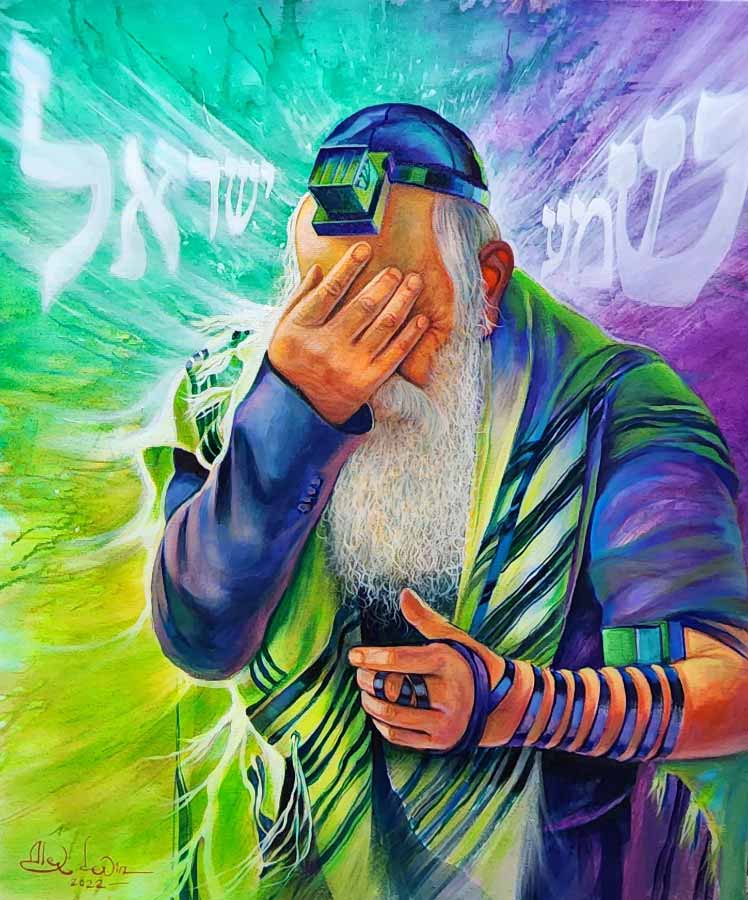To Separate or Not to Separate

How One Decision can Become a Turning Point in Life:
After Avram returned from Mitzraim, we read the following about Lot (Bereshit 13:5): וְגַם־לְלוֹט הַהֹלֵךְ אֶת־אַבְרָם הָיָה צֹאן־וּבָקָר וְאֹהָלִים (And also Lot, who went with Avram, had a flock, cattle and tents). Since we already know from 13:1 that Lot was traveling with Avram, it seems a bit redundant to repeat this fact again in 13:5. Therefore, Rashi asks the question: מִי גָרַם שֶׁהָיָה לוֹ זֹאת? (What caused him [Lot] to have this [wealth]?). His answer: הֲלִיכָתוֹ עִם אַבְרָם ([The fact that] he was going with Avram). In other words, Lot was blessed with material wealth for no other reason than that he accompanied the true Tzaddik of his generation, Avram. Wealth is a wonderful asset, but it can be a potentially dangerous asset as well for it has the ability to increase a person's arrogance which in turn can lead to many transgressions.
As a result of their combined wealth coupled with the need to find sufficient pasturage for their animals, contention broke out between Avram's herdsmen and Lot's herdsmen (13:7): וַיְהִי־רִיב בֵּין רֹעֵי מִקְנֵה־אַבְרָם וּבֵין רֹעֵי מִקְנֵה־לוֹט (And there was contention between Avram's herdsmen and Lot's herdsmen). Even though 13:7 doesn't state that there was contention between Avram and Lot directly, it is clearly implied by what Avram said in the next verse (13:8): וַיֹּאמֶר אַבְרָם אֶל־לוֹט אַל־נָא תְהִי מְרִיבָה בֵּינִי וּבֵינֶךָ וּבֵין רֹעַי וּבֵין רֹעֶיךָ כִּי־אֲנָשִׁים אַחִים אֲנָחְנוּ (And Avram said to Lot, Please, let there not be contention between me and you, and between my herdsmen and your herdsmen, for we are kin [literally, 'men-brothers']. Sefer ha-Yashar explains in detail what the contention was all about and how much it caused intense strife directly between Avram and Lot. In short, no matter where they went, Avram's herdsmen were very careful to make sure that Avram's animals never even trespassed (let alone grazed) upon private fields owned by the inhabitants of the land. However, neither Lot nor his herdsmen were so particular. Day after day, Avram pleaded with Lot to restrain his herdsmen, but he refused to do anything about it. In the end, Avram had no other choice but to insist that Lot separate himself from him (13:9): הֲלֹא כׇל־הָאָרֶץ לְפָנֶיךָ הִפָּרֶד נָא מֵעָלָי (Isn't the whole land before you? Please, separate [הִפָּרֶד, hi'pared] from me). What was Lot's response? He took Avram's advice, looked around, saw the well-watered Jordan Valley and moved to S'dom (13:10-12).
Many years later, a somewhat similar story presents itself, but this time it's between descendants of Lot and a descendant of Avraham. We know the story. When Naomi's husband and two sons passed away, she decided to return to Eretz Yisrael. After initially heading out on the road together with her two daughters-in-law Orpah and Rut, she changed her mind and instructed them to go back (Rut 1:8): וַתֹּאמֶר נׇעֳמִי לִשְׁתֵּי כַלֹּתֶיהָ לֵכְנָה שֹּׁבְנָה אִשָּׁה לְבֵית אִמָּהּ (And Naomi said to her two daughters-in-law, Go, return, each of you, to your mother's house).
What was their response? After each of them had shed many tears, the daughters-in-law finally responded (1:10): וַתֹּאמַרְנָה־לָּהּ כִּי־אִתָּךְ נָשׁוּב לְעַמֵּךְ (And they said to her, Rather, we will return with you, to your nation). Admirably, neither one of them initially accepted Naomi's advice. Not being satisfied with their response, Naomi pressed them again and again, pleading with them to go back to their family home (1:11-13). After shedding even more tears, Orpah took Naomi's advice and went back home. Rut, however, refused to listen to her mother-in-law. She would not separate herself from Naomi but rather, she clung to her with all of her strength (1:14). Rut's statement of devotion is well known (1:16-17): אַל־תִּפְגְּעִי־בִי לְעׇזְבֵךְ לָשׁוּב מֵאַחֲרָיִךְ כִּי אֶל־אֲשֶׁר תֵּלְכִי אֵלֵךְ וּבַאֲשֶׁר תָּלִינִי אָלִין עַמֵּךְ עַמִּי וֵאלֹקַיִךְ אֱלֹקָי׃ בַּאֲשֶׁר תָּמוּתִי אָמוּת וְשָׁם אֶקָּבֵר כֹּה יַעֲשֶׂה יְיָ לִי וְכֹה יוֹסִיף כִּי הַמָּוֶת יַפְרִיד בֵּינִי וּבֵינֵךְ׃ (Do not press me to leave you, to return from following you, for wherever you go, I'll go, and wherever you spend the night, I'll spend the night, your nation is my nation, your G-d is my G-d, where you die, I'll die and there I'll be buried. Thus should Hashem do to me, and more also, if [even] death separate [יַפְרִיד, yafrid] me from you).
What do we see? First, Lot separated himself from Avram without even pretending to protest. Second, Rut made a vow that even death shouldn't separate her from Naomi. Finally, Orpah followed in the footsteps of her great-great [etc.] grandfather Lot. Whereas Orpah compounded his sin, Rut rectified it.
Let's go one step further. What became of Lot's decision to separate himself from Avram? First, he was taken as a hostage in a war between the five kings and the four kings. After being miraculously rescued by Avram, he returned to S'dom only to have his home and all of the property that he so eagerly sought to protect and expand upon, completely wiped out. With the exception of two of his daughters, the rest of his family, including his wife, got killed in the overturning of S'dom. Finally, he ended up living in a cave, drinking wine to the point of extreme intoxication and fathering children through incestuous relations with his two daughters. Thus far is the story of Lot. His reputation ended in complete ignominy with nothing more being said of him in the Torah.
And what of Orpah? What became of her decision to separate from Naomi? The very night that she turned away from Naomi, she gave herself over to depraved and extensive sexual immorality. Rav and Shmuel disagreed about the particulars of her conduct, but for the sake of our readership we won't repeat it here (Sotah 42b and Rut Rabbah 2:20). Furthermore, she gave birth to four Palestinian giants, one of whom was the infamous Goliath, the arch-enemy of the Jewish People in the times of Sha'ul and David (Shmuel Bet 21:16 and Sotah 42b). As with Lot, her reputation ended in shame and everlasting disgrace.
However, what of Rut? What became of her decision to refuse Naomi's pleadings and remain with her? In the merit of leaving everything behind including her privileged lifestyle (after all, she was a princess, a descendant of Eglon, king of Moav [Sanhedrin 105b, Nazir 23b, Rut Rabbah 2:9]), and joining the Jewish People, an act which required tremendous mesirut nefesh, she became the great-grandmother of David ben Yishai, Melech ha-Mashiach.
The unspoken lesson in all of this should be abundantly clear. But just in case it's not, let's spell it out. We need to be very careful about what we value, from whom we chose to separate, and with whom we chose to connect. Those decisions may have serious consequences, either for bad, chas v'shalom, or for everlasting good.






